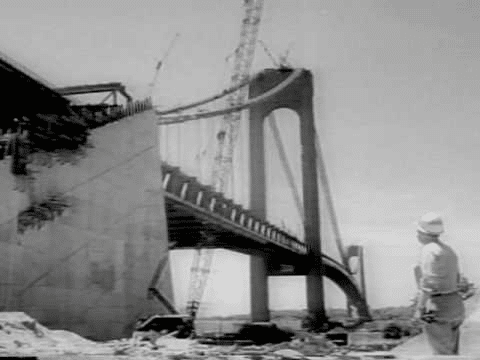
[originally published Sept. 11, 2018]
Everyone has their 9/11 story. Mine is in a car heading to LaGuardia for a 7 am flight to Los Angeles, crossing the Whitestone bridge and seeing the Manhattan skyline in that early morning glow. It was a perfect day. Crisp. Clear. Not a cloud in the sky, as they say. I remember that view so vividly. I remember thinking to myself: what a perfect day.
The plane took off without a hitch. We were a start-up and couldn’t afford a non-stop flight, so we were headed to DFW for a connecting flight. I think about that a lot these days. The long haul flights to LAX and SFO carry more fuel, so those were the hijacking targets. What if …
We landed in Dallas as planned. The pilot never said anything en route, but as soon as we landed a lot of phones started to buzz and ring. My phone was out of juice, of course, but a buddy got word back to my wife that we were okay. At the time it was all just an accident. Some plane had accidentally crashed into the World Trade Center. Ain’t it awful. Stuff happens, I suppose. And then we heard about the second plane.
We got in front of a TV at the airport and watched the Towers burn. No, not an accident. Intentional. A tragedy. But somehow it was still recognizable. I was living in Manhattan in 1993 when Omar Abdel Rahman bombed the World Trade Center and put a plume of smoke into the air. It was like that, right? Right? And then the first Tower fell.
I remember thinking that it must just be a trick of the camera angle, that somehow the single Tower I was seeing on the TV must be perfectly blocking my view of the second Tower. I remember insisting to myself that this must be the case. Because the alternative was unthinkable. So we stood watching, mute. And then the second Tower fell.
That afternoon, we rented a car and began the drive back home, listening to NPR the whole way. We stopped in Shreveport that first night to play blackjack. I don’t know why we did that. All I remember is that I really really really wanted to gamble. Weird, huh? No idea whether I won or lost that night.
And so we drove. Two random thoughts from that drive, both about the importance of physicality in a digital world.
- I know he’s become a dark Cartoon, and I am hard pressed to think of a more rancid human being than Rudy Giuliani today, but on that drive home and listening to the press conferences on the radio … I thought Rudy Giuliani was great. Not good. Great. He was physically present and physically in charge. There’s no substitute for that.
- George W. Bush, on the other hand … look, I know it’s important to “keep the president safe” and “we didn’t know whether this was a full-scale attack” and all that. I get it. I also don’t care. Physical bravery is an underappreciated but absolutely necessary component for leadership in an emergency, and by allowing himself to be whisked away to “an undisclosed location” immediately after the attacks, George W. failed that test. The first of many failed tests, as it would turn out.
Yes, we all know how this turned out. A wrongheaded war under wrongheaded pretense in Iraq. An eternal war in Afghanistan. An utter failure to confront our true enemies that day – the Deep State of Saudi Arabia and the Deep State of Pakistan. Our true enemies still, I suspect.
I’ve been writing a lot recently (“Things Fall Apart (Part 1)” and “Things Fall Apart (Part 2)“) about our polarized society, a polarization that has created a Widening Gyre of politics and a black hole of markets. I get sad when I write these notes, because it’s hard to see a way out except by the tried and true method of creating a Big War with an Other.
But I’ve been thinking today about that Whitestone bridge and the feeling I had going over it on September 11, 2001. Not just thinking about the bridge in the symbolic sense, as in what we need is a bridge between the polarized and fragmented elements of our society. No, that’s true enough, but I’ve been thinking about the actual physical Whitestone bridge, constructed in only 23 months to allow people to get to the 1939 World’s Fair in what used to be the Corona Ash Dump (literally 50 million cubic yards of ash and waste, known to Great Gatsby fans as the Valley of Ashes) and is now Flushing Meadows Park. Thank you, Robert Moses.

In 1937, in the midst of a Great Depression, we started building a mighty bridge, not for a war effort, but for a popular movement based on wonder and progress. We did that. We built it quickly and well.
I think we are still capable of building mighty bridges, physical and digital alike. I think we are still capable of being motivated by a sense of wonder and progress. It’s not going to emerge from government, but it can’t be divorced from government. It’s not going to come from private enterprise, but it can’t be divorced from private enterprise. It has to be ALL of that, in the form of a Movement.
But we can do this. We must.
Because the alternative is unthinkable.









Well, that’s provocative!
Cheers - Jon
Absolutely no issue with your central points.
But you might want to rethink your admiring point about Robert Moses.
Yes, he got a bunch of useful infrastructure built (including the Whitestone Bridge) but this was in an age where extremely narrow interests could dislocate hundreds of thousands of people (mostly black and always lower class) thanks to a massive top-down propaganda effort (led by the New York Times) focused on “Yea Progress!”. Very little of Moses’ work fit the general New Deal pattern of investing in things that would directly benefit broad portions of society. It was largely for the benefit of the heavy construction industry and wealthy suburban commuters. Moses was more akin to todays Military-Industrial Complex where massive expenditures benefit a very narrow set of interests while doing things that provide no meaningful broad-based benefits.
The Cross Bronx Expressway destroyed most of the Bronx, created the hellhole of the South Bronx killing all the industry there. New York City had huge vibrant working and middle class populations coexisting with the wealthy. Moses massively accelerated the process of extreme socio-economic segregation that is one of the key historical drivers of your widening gyre.